We know very little of the period in France, but like many of their compatriots then converted to the Protestant sect sometime after the
Protestant Reformation sweeping across Europe in the 16th Century. However France stayed well within the Catholic camp, so life couldn’t have been easy. So shortly after the Revocation of the Edict of Nantes (revocation took place in 1685), Jean Samuel Charnaud (a direct ancestor of mine, 8 generations back) fled
Pont de Veyle, near Bresse in Eastern France for Switzerland. I know nothing of what the family did as a living in France, or of his ancestors. Jean Samuel settled in
Vevey in Switzerland, with his many sons and daughters (8 children, I am descended from a middle offspring, Pierre Samuel 1696-1746). Again I know nothing of what the family members did as an occupations in this country. From the same old family tree, I know again that Pierre had 5 sons, 3 of which died young, and a middle son, Jean born 1725 who went either alone or with his father to England and at some point (these rough date markers point to a Swiss residence of around 60 years) and became a naturalised British subject in 1762, by special act of parliament as it was required in those days.
The Period in Turkey
It was Pierre’s son Jean Charnaud who went to the Levant, we do not know when, and became a ‘factor’ of the
British Levant Company that had a monopoly of trade conducted between England and Turkey. I do not know how this came about, put perhaps the Levant connection went back earlier, as Vevey was also the temporary residence of other families of French Huguenot refugees1, who also ended up in the Levant, so perhaps there was some sort of support / information network. The connection and vague family knowledge of the Levant and its ‘riches’ could go back to the Crusades, who knows? Jean married a Margaret Rosalie. I do not know if she came from Switzerland or they met in
Smyrna, where he eventually died in 1773 (thus giving him a maximum residence period in Turkey pre-death of 11 years). Jean had three children, Francis who became the H.M. Consul at Smyrna and a member of the Levant Company in 1791. Other children were James and John, the latter being my ancestor, five generations back. Following the start of this study however, the family story of Consul of Smyrna did not match historical records, and it seems that he in conjunction with his brother James were British Consuls in
Salonica, at the time part of the Ottoman Empire.
My ancestor John Charnaud, born Smyrna 1770, died in
Alexandria 1827, and like his father had become a factor in the Levant Company. He married the Smyrna French Levantine Adelaide Couturier in 1805. His eldest son, John Henry, presumably also a factor, was posted to the remote Black Sea port city of
Trabzon, in 1837 as stated in the family bible, presumably to act as a buying agent for the different products of the region could offer (tea plantations would be started a century or so later, so hazel nuts, pistachios, lumber etc.?), and he stayed till 1851 (14 years) in this city where a few of his children were born (he married in 1839). Interestingly John Henry Charnaud’s sister, Adalaide married the British Consul in Trabzon, Frank Stevens, so perhaps she made her way to that port city as their father died in 1827 in Alexandria, chosing him amongst 4 brothers for economic support. John Charnaud had six more children, the middle child Frederick being my direct ancestor. Frederick married the Smyrna Levantine Mary Marraccini. Frederick Charnaud died in 1886. Frederick had four children, the eldest also named Frederick was my direct ancestor (great-grandfather), who married the British Smyrna Levantine family offspring, Dermina Borell.

Edwin Stevens Charnaud (brother of my great-grandfather Frederick) family group: Edith (nee Barker) his wife is centrally seated, to her left probably daughter Winnie, and second daughter Effie probably to the left front of her, third daughter (b. 1882) Hilda should be positioned between parents, the front of father Edwin, son Edwin (b.1886) and the elder crosslegged girl the youngest child Phyllis (b.1887). Phillis my grandmother married her cousin Harold Irwin Charnaud.
My earliest recollection of being in Bornova and being alive was when I was a baby sitting on the lap of my father Harold JOHN Charnaud playing with the volume knob of a radio, and getting a shock when the sound increased. This was in our upstairs flat in the Edwin Charnaud house in Bornova, on the outskirts of Izmir. My grandmother Phyllis was very much the matriarch of the family and lived in her house across a small square from us. Her house was an extended household where aunts and other single ladies also resided. These included my aunt Hilda (spinster), my aunt Winnie (Winifred de Cramer) as well Madeleine Whittall (spinster). Kazim the cook lived in a flat in the cellar and a Cretan nurse Anastasia lived in her room in the staff quarter. Granny Phyllis lived as a widow from 1950 when my paternal grandfather Harold Irwin died of a brain haemorrhage whilst combing his hair in the bathroom. Grandpa Harold was the factory manager at the Giraud basma (textile printing)factory in Izmir. His factory workers carried his coffin from St. Magdalene’s church to the Bornova Anglican cemetery, where all my family are buried. I was a babe in arms and cannot recall ever seeing him. Aunt Winnie had lived as a widow with Granny after her husband Fernand de Cramer died. Winnie, through Fernand had been befriended by
Heinrich Schliemann the famous German archaeologist who discovered Troy. Schliemann gave Aunt Winnie a fabulous example of Rhodian embroidery as a thank you for their hospitality.
After a short time my parents moved to the Ikinci Kordon in Karsiyaka, Izmir in the ground floor flat of a block owned by my maternal grandfather Giovanni Galizzi. At the time my maternal grandfather lived in Karsiyaka but had previously originated from Palermo Sicily and my maternal Grandmother from an Italian Levantine family who had been fabulously wealthy and owned large areas of Rhodes and lost it all in the nationalisation of ‘Italian’ lands there after the Second World War. As they grew older they moved to the upstairs flat in Izmir. I was lucky that way to get to know all my remaining grandparents very well. My maternal grandmother Elizabeth (nee Prelorenzo) one of the best cooks a child can know (her fried calamari was enough to start a stampede of dinner guests), died first of liver cancer. We then moved back (1961) to Bornova and rented the butchers house, in the square on the other side of my Grandmothers house to the one we first lived in, next to the Baladour house (where Denise (nee Baladour) and Remo de Andria lived after Mr Baladour had died there) and where Geoffrey and Audrey Maltass lived. This house was my favourite as I had my own flat in the basement. It also coincided with the welcome birth of my brother Edwin Matthew twelve years my junior. I was by this time at school in Scotland and dreamed of this idyllic home. Sadly my grandfather, Giovanni Galizzi, soon died of a broken heart, never quite having got over the loss of his beloved wife, a part of whom is clearly imprinted in my DNA.
My earliest childhood memories were of playing with my best chums Philip and Herbert Whittall (sons of Victor and Mary Whittall), Martin and Max (Junior), sons of Max Steinbuchel and Renee nee Mattheys. Also in our group of pals were Jeanny and Alain Winterhalter (parents Nicky and Yvonne, nee Balliani), Lucien Arkas, June Whittall (daughter of Douglas and Susan Whittall).

From left Philip Whittall, Alain Winterhalter, Harry Charnaud, Herbert Whittall, unknown, Jeanny Winterhalter in the Balliani garden in Bornova.
Summers were spent in Lidja, now known as
Ilica near Çesme, in various rented houses on the Terrace or in my aunt Winnie’s house which had a magnificent jetty (skala) overlooking the majestic mountain at Karareis with its own thermal hot water spring where you entered the sea down the steps. Summers were spent skin-diving for fish in the morning, eating vast lunches, a siesta, and then a ‘sweat’ (a hard walk) on the hills behind Lidja, shooting partridges on the scrub hills. One had little time to play in the evenings as we were exhausted. What was of great interest was that as various nationals, we all spoke a private, lingua franga of a composition of any words from at least five (English, French, Turkish, Italian, Cretan Greek) languages. Whichever word was best to express the moment. I recently discovered that my Greek which was difficult to understand or make understood in Athens made immediate and complete sense in Crete on a recent visit, even to the degree of my accent.
I have some apocryphal stories of my ancestors, one of which was that my great, great, great something grandfather was kidnapped by brigands outside Bournabat and a ransom was only paid by the family when an ear was sent to them. I do not know if it was his ear that was sent... Also my Grandmother Phyllis who always gave lunch on Sundays to the padre who came for the Sunday service, was overheard telling him that she had gone the day before to ‘Paradise’ to see a Mrs Icard. The new padre seeing that granny was in her eighties and could have been on the way to losing the plot, humoured her saying that most good people visited Paradise, even sometimes before the main event. Granny was quite adamant of her visit and talked about the traffic etc., and the final denouement was when ‘Paradise’ was discovered to be, for the new ‘English’ vicar, an anglicized version of Paradiso a quarter near Buca to the southeast of Izmir... My great grandfather Fritz was an awful shot and on one occasion his chums bribed a man with dead partridges to give them to Fritz who claimed them as his bag. Regrettably for Fritz they each had a bit of paper in their beaks, saying Fritz shot me....
At the time of the great fire of Smyrna which started on the 13th of September 1922 my grandfather Harold Irwin wrote from our house in Bournabat (25 Kazakoglu Sokak) to his wife Phyllis a letter [
view] on the 7th September, two days before the Turks entered the town and Turkish officers billeted into our house, describing the refugees and defeated Greek soldiers retreating in a scene of complete chaos. Meanwhile my Grandmother, her children Edith, Olive and my father John, (Betty was not yet born) had gone to Cyprus on a ferry boat they rented to stay with relations.

Cyprus where this shot was taken in 1922-3 was obviously the refuge for these families just after the fire. This photo ‘face named’ by Ronald Henderson in 1983, a descendant of the Williamson family. Edith Charnaud is featured as a young girl seated in front (hover over photo for names).
Sometime in the 1930s my grandfather Harold Irwin caught a burglar in our house in Bornova and was going to call the
police. The man was desperate and asked my grandpa not to, as he and his family were starving and he was doing his best to provide food for his wife and kids. My granpa then gave him a gold pound and told him never to commit a crime and do anything he could to earn an honest living. About 40 years later my aunt, who now lived in the USA (my grandpa’s daughter) was coming to Bornova to see her widowed mother and took a taxi from the airport to the house. On arival she asked the driver to wait a minute whilst she got some money from inside, but the driver first asked her who she was. When she told him he flatly refused to take the fare and told her the story of what he had done and how kind my grandfather had been. None of us knew of this and could not ask him as he had been dead a long time.
‘Ah! the milk of human kindness’.
It seems difficult to accept that my grandmother Phyllis was the last of us to be born, live and die in Bornova. It is so final for a great family adventure full of hope and expectation. My parents came to England in 2000 to retire. Their health was beginning to fail and they wished to live close to their new enlarged families of my brother and my own.

Butcher’s House garden with from left my mother Iva, Mary Whittall and Phyllis Charnaud.

Phyllis Charnaud with eldest daughter Edith, 91 years ago (c. 1918).

My aunt Betty Charnaud, born 1930 (youngest daughter of Phyllis), in the garden of the family house at 25 Kazakoğlu sok., Bornova.
Both my parents died and are buried in the cemetery in Bornova. I have a complex relationship with my ancestral roots in Turkey. I hold no particular wish to return to live there as I feel completely at home and at ease in England, but I often allow my mind to wander back to my old haunts, houses and adventures I had so many years ago. I still visit Izmir, Bornova and Lidja as a sort of pilgrimage and love to eat the local foods and sit at sunset on the quay in Izmir watching the sun go down on the Western horizon with a beer in my hand and thinking others like Homer before me may have done the same.

Top left-right: Harold, Phyllis, Ivy Charnaud, bottom left-right: Betty Whittall, Daphne Whittall (later Aliberti).

Party at Bornova – Bournabat Golf Club From left to right: Unknown - Phyllis Charnaud – Mary Patterson – Lillian Hornstein (at back with stars on dress) – Unknown – Sheila Whittall – Grace La Fontaine – Betty Charnaud (in hat) – Gentleman unknown.

Aunt Peggy Whittall and on the right, Joan La Fontaine.


Aunt Olive Charnaud, one of the daughters of Phyllis, and on the right, Magdelaine Whittall.

Charnauds, top left-right Hilda, Gladys Pengelley (nee Charnaud), Phyllis, sitting left-right: Edwin, Winnie Cramer (nee Charnaud), Effie Williamson (nee Charnaud), 1950s.
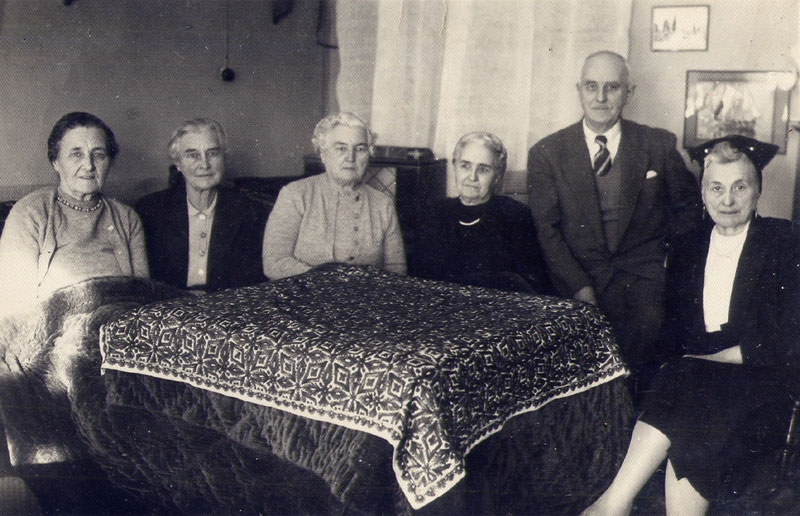
Charnauds, the same group as above, seated around a tandoor (heated table with covering cloth), Granny Phyllis’s House, 25 Kazakoğlu sok., Bornova. I have clear memories of listening to the BBC News at 9 pm in 1956 when the newscaster announced that British and French heavy bombers had bombed Alexandria and other locations in Egypt. I also recall hearing news of the invasion of Hungary and Budapest by the Russians also in 1956. This was a regular fixture of our family sitting round the radio listening to the BBC World Service, whilst comfortably around the ubiqutious tandour.
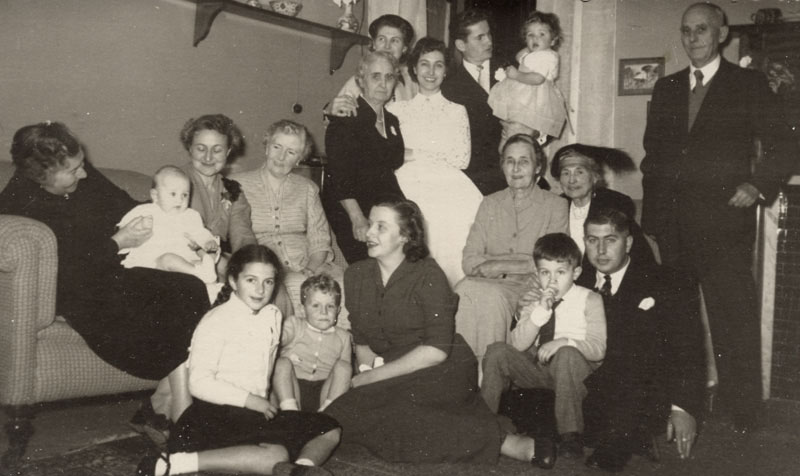
Back row, left to right: Doris Charnaud, Carolyn Sell (baby), Yvonne Winterhalter (nee Balliani), Annie Walker, Phyllis Charnaud, Edith Sell (nee Charnaud, at the very back), Betty Crossman (now Rasmussen), Daryl Crossman holding Jennifer Sell (now Daniels).
Front row, left to right: Jeanny Winterhalter (now Berlie), Alain Winterhalter, Iva Charnaud (nee Gallizzi), Hilda Charnaud, Winnie Cramer (nee Charnaud), Edwin Charnaud (standing on rhs), John Charnaud (crouching), Harry Charnaud (on knee), taken at Granny Phyllis’s house, 25 Kazakoğlu Sokak, Bornova around 1956.
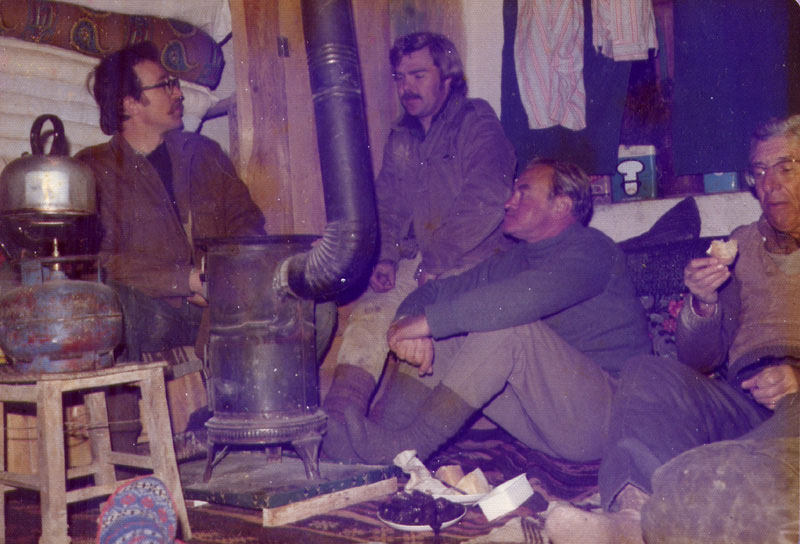
Işıklı at Lake Çivril, farmer’s house, hunting party. 1976, left-right: Tim, Herbert, Teddy and Douglas Whittall.
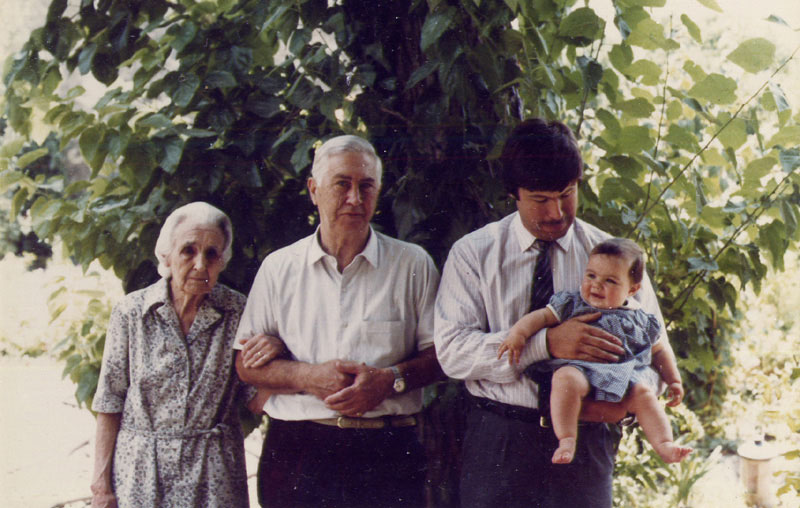
1982 - Phyllis, John, Harry, Katherine Charnaud.
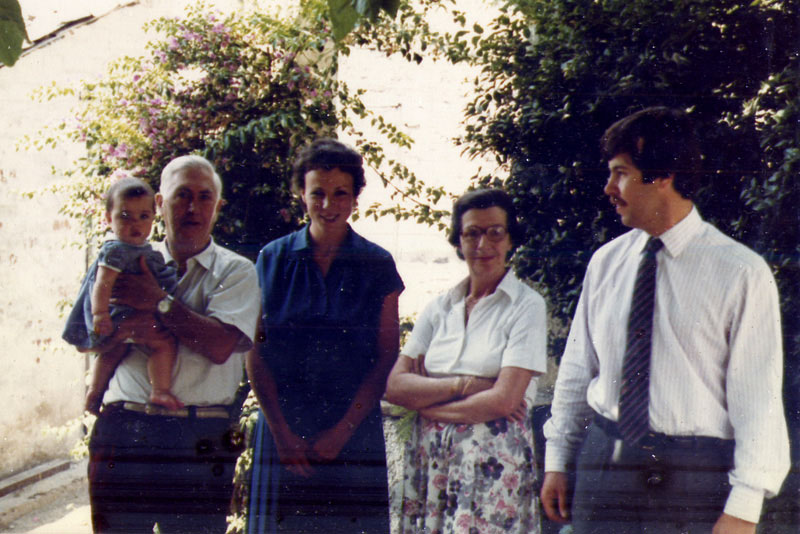
My mother and father (Maria and Harold John Charnaud) 1982, Bornova, with me and my family.

My father, Harold John, returning from the day’s hunt.
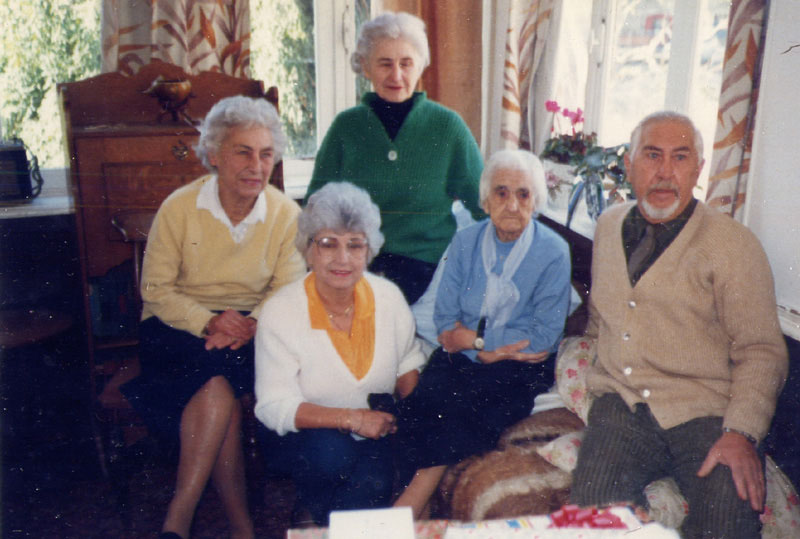
1987, Granny Phyllis’s 100th birthday party at Bornova, in Edwin Charnaud’s house, Phyllis’s 4 children present: top left-right, Olive and Edith, bottom left-right Betty, Phyllis and John Charnaud.
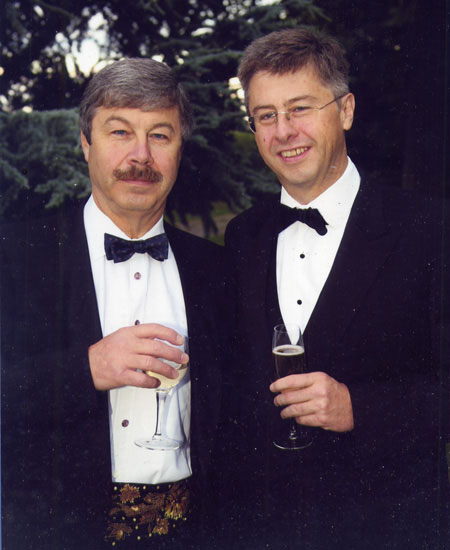
June, 2008, at my son David’s 21st birtday party, me with my brother Edwin.
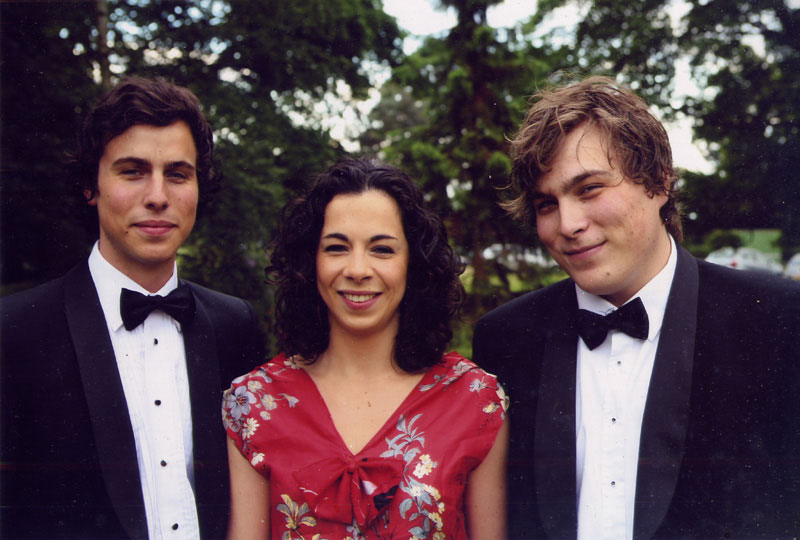
My children, left-right: David, Katherine and Alex, at the same party.
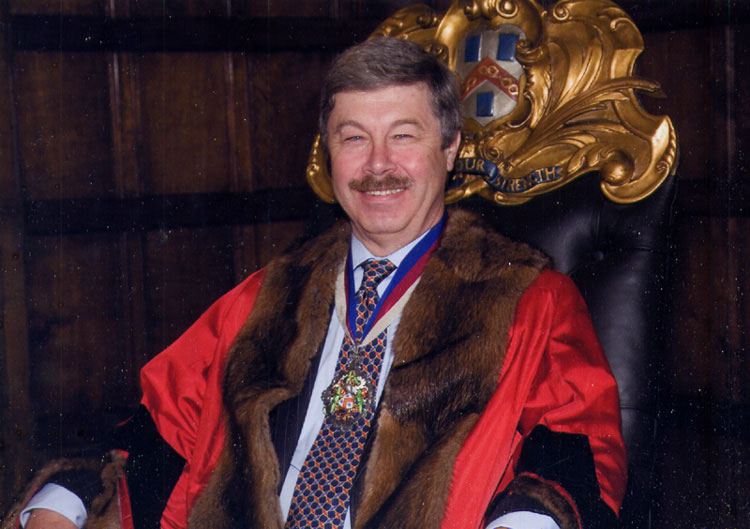
Harry on the day he was installed as The Master of the Worshipful Company of Ironmongers in the city of London, 9th July 2009.
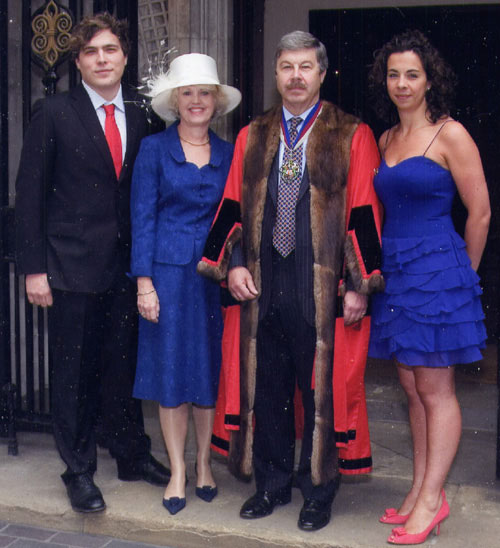
The same day with the family at the gates of the Worshipful Company of Ironmongers in the city of London. Harry flanked by his wife Penny and children Katherine and Alex (David missing on the photo).
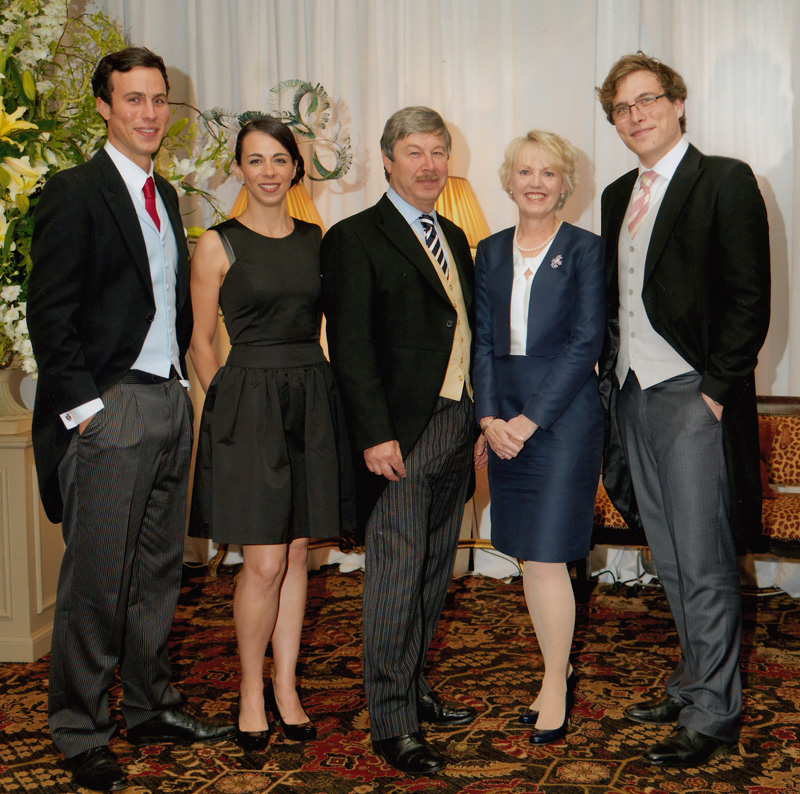
From left to right: David, Katherine, Harry, Penny and Alex Charnaud, July 2012 at Rhiannon Tracy’s (daughter of Anne Twallin now Tracy) wedding, Edinburgh.
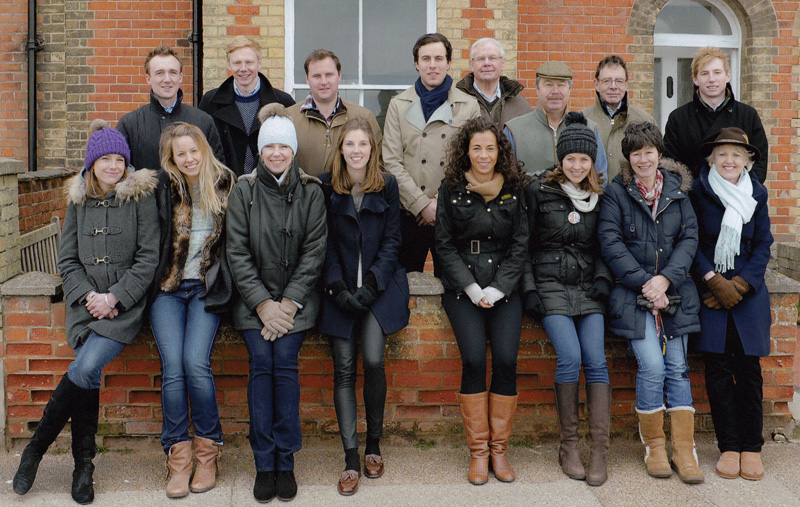
Outside no: 5 North Parade, Southwold, with all the Twallins and cousins.


























